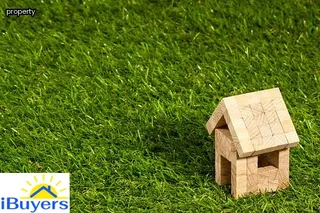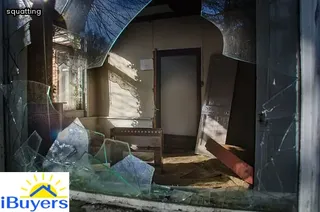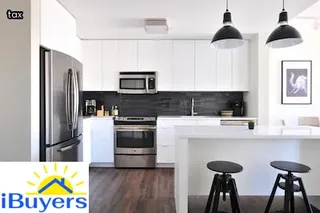In the state of Florida, squatting is defined as the act of occupying a piece of real estate without permission from the lawful owner or renter. It is important to note, however, that in certain cases, squatters may acquire some legal rights to the property they occupy.
These rights are typically only granted after an extended period of time living on the property and meeting certain criteria. In order for a squatter to qualify for possible legal rights, they must have made improvements to the land or property, paid taxes, and not have been evicted by law enforcement or other officials.
Additionally, they must be able to prove that they had no knowledge that someone else owned the property before they began occupying it. To determine if a squatter has any legal rights to a particular piece of real estate in Florida, one should speak with an attorney who specializes in real estate law.

When it comes to real estate law in Florida, there is often confusion between the rights of tenants and squatters. Although they may seem similar on the surface, they are actually quite different.
Tenants are people who enter into a rental agreement with a landlord or property owner to use the space for a certain amount of time in exchange for rent. They have legal rights that protect them from eviction without due process and can even sue landlords for damages if those rights are violated.
Squatters, on the other hand, are individuals who take up residence in an unoccupied building without permission from the owner. They have no legal protection from eviction but may be able to stay in the property if they can prove that they have been living there for a certain period of time and can demonstrate that they have made improvements to it.
It's important to understand these differences when dealing with real estate law in Florida as it can affect how you proceed as either a tenant or squatter.
Squatters can be an issue for property owners in Florida, so understanding the legalities behind a holdover tenant is important. A holdover tenant is a person who continues to occupy rental property after the lease period has ended.
In Florida, a landlord must give the tenant written notice that they are being evicted and that they must vacate in seven days or face legal action. If the tenant does not vacate within seven days, the landlord may go to court and file an eviction lawsuit against them.
To avoid this, it's essential for tenants to understand their rights and responsibilities when it comes to squatting on Florida real estate. For instance, if a squatter has been living in a rental unit for more than seven months without paying rent or without an agreement from the landlord, they may have established rights as a tenant under state law.
In these cases, landlords must begin eviction proceedings through formal channels rather than trying to evict them through self-help means such as changing locks or cutting off utilities. It's also important for tenants to know that they can be held liable for any damages caused while squatting on private property and could potentially be charged with criminal trespassing as well.

Squatters' rights in Florida can be complicated and difficult to understand. However, establishing a squatter's rights in the state of Florida is possible with a few steps.
To begin, one must occupy the property for at least seven years without interruption. This means that the person occupying the land must provide evidence that they have been living on the property continuously for seven years or more.
In addition to this, the squatter also needs to demonstrate an intention to possess the land by making improvements to it such as building fences, planting crops, or making other permanent changes. Furthermore, if a squatter successfully meets these requirements then they are legally considered owners of the property and will gain title after seven years of continuous possession.
Additionally, squatters may need to file paperwork with their local court in order to establish their ownership and ensure that their rights are properly recognized by the state. Bear in mind that squatting is illegal in most places so it is important for squatters to become familiar with all relevant laws before attempting to establish their rights.
In Florida, squatting is a form of trespassing and can have serious legal consequences. Squatters typically occupy abandoned or unoccupied lands without the owner's permission and are not paying rent or utilities.
This means that they are technically in violation of the law and may be subject to criminal charges if they are discovered. While some states offer protection for squatters under certain conditions, this is not the case in Florida.
Squatters can face up to one year in jail and thousands of dollars in fines if found guilty of trespassing. Additionally, the owner of the property may take legal action against them to reclaim their land.
Furthermore, squatters are also at risk of being evicted without warning if they fail to meet certain criteria as outlined by state laws. In these cases, they may be required to leave immediately with no recourse for compensation or support from the landlord.
Ultimately, it is important for anyone considering squatting on someone else's property in Florida to understand the potential risks involved before taking any action.

Knowing how to legally remove a squatter from Florida real estate laws can be tricky. It is important to understand the rights that squatters have according to state and federal law, so property owners can take the proper steps for eviction.
The state of Florida has specific laws in place concerning squatting and trespassing, which means that if the squatter meets certain criteria, they may be able to stay on the premises and gain legal title to the land. If they do not meet these criteria, then the owner must follow certain procedures in order to legally oust them from their property.
This includes providing notice of eviction, filing a complaint with local law enforcement, and using appropriate court documents such as a summons or writ of possession. Property owners should also research any applicable local ordinances or statutes to make sure all legalities are being followed throughout the removal process.
In some cases, such as when an owner does not possess valid title or legal occupancy rights over their property, additional steps may need to be taken in order for an eviction to be successful. Ultimately, understanding squatters' rights in relation to Florida real estate laws is essential for anyone seeking to lawfully remove a squatter from their premises.
The best way to prevent squatters from invading your home is to be proactive and aware of the laws in Florida. It is important to understand that, under Florida real estate law, squatters have certain rights.
To protect yourself and your property, you should take steps such as notifying the local authorities of any suspicious behavior on your property and having an attorney review any leases or rental agreements with potential tenants. Additionally, if a squatter enters your property without permission, they may be subject to civil trespass and criminal charges.
Lastly, it is wise to post “No Trespassing” signs on your property and ensure that all entry points are locked and secure at all times. Taking these measures will help ensure that squatters are not able to unlawfully occupy your home.

Squatting in Florida real estate is a complex issue due to the fact that laws vary from state to state. To understand the consequences of unauthorized occupancy, it is important to understand what squatting is and how it applies to Florida law.
Squatting can refer to a person taking up residence in an abandoned property without permission, or someone staying in a rental property without paying rent. In either case, the consequences of unauthorized occupancy can be serious.
Squatters may be held liable for damages, criminal prosecution, and even eviction depending on the situation; tenant rights are also affected if the squatter has been living in the property for more than seven days. If a landlord is found to have wrongfully evicted a squatter, they may be liable for damages as well.
It's important for all parties involved to familiarize themselves with applicable laws and regulations regarding squatters' rights in order to avoid any legal issues that could arise from unauthorized occupancy.
When a squatter has taken up residence in a property without the owner's permission, it can be difficult for the owner to have them removed. In Florida, there are civil remedies available to owners to evict squatters from their property.
First, the owner must determine if they have legal grounds for eviction. If so, they can serve formal notice that outlines the reasons why they are asking the squatter to leave.
They must also provide information on how much time they have to vacate the premises and any penalties associated with failing to comply with the order. If this process is followed correctly and the squatter does not comply with the eviction notice, then an eviction lawsuit may be filed in court.
This will allow a judge to issue a writ of possession which orders law enforcement officers to physically remove the squatter from the premises. While this process may take some time, it ensures that all parties involved understand their rights under Florida real estate laws and that justice is served fairly and equitably.

Property owners in Florida should understand the impact that bad faith claimants can have on their real estate rights. Bad faith claimants are individuals who occupy a property and claim legal ownership, even when they do not have any legal right to be there.
Property owners must take steps to protect their rights if they suspect squatters are living on or taking possession of their property. The laws relating to squatters’ rights vary from state to state, so it is important for property owners to understand the laws in their area.
In Florida, bad faith claimants may be able to use the law of adverse possession in order to gain legal title to the property. This requires occupiers to prove that they have been occupying the land for a certain amount of time with good faith and without permission from the rightful owner.
If successful, bad faith claimants can legally take ownership of the property and deny its rightful owner access. To protect themselves against such claims, land owners must ensure that all occupants are aware of their rights and responsibilities under Florida’s real estate laws.
Additionally, it is important for landowners to document any disputes or negotiations with potential bad faith claimants in order to demonstrate that an attempt was made to settle the matter before going before a court.
Navigating eviction procedures for unlawful detainers can be a daunting task, particularly in Florida real estate law. It is important to understand the rights of squatters and the laws governing how they must be evicted.
In Florida, squatters are defined as individuals who illegally occupy a property without permission from the owner or legal tenant. If a squatter has been living on your property for more than seven days, they may be considered a tenant and you must use the formal eviction process through court proceedings.
Before you can begin this process, it is important to determine if there is any ownership or rental agreement that applies to the situation, as this will affect your right to evict the squatter. Additionally, you must make sure you follow all local ordinances regarding notice requirements for tenants and serve all necessary paperwork correctly in order to successfully evict the squatter from your property.
You should consult with an experienced attorney if you have any questions about specific state laws or need help determining whether or not an individual qualifies as a squatter.
Yes, it is possible to evict a squatter in the state of Florida. Depending on the specifics of a given situation, the process for evicting a squatter may vary.
Generally speaking, the owner of the property must file an eviction lawsuit in court against the squatter and then follow all necessary legal steps to prove ownership and evict them from the property. The owner must provide evidence that they own or have rights to the property and that the squatter does not have any legitimate claim to it.
Additionally, owners must serve notice to the squatter informing them that they are trespassing on private property. If squatters fail to respond or leave by their own accord after being served with notice, an eviction order can be obtained through court proceedings.
Property owners should consult with an experienced real estate attorney when considering evicting a squatter to ensure they are taking appropriate legal action and following all applicable laws.

Squatters' rights, or adverse possession laws, are an often-misunderstood part of real estate law in the state of Florida. Generally, squatters' rights refers to the legal concept by which someone who has been occupying a property for a certain period of time may be entitled to ownership of that property if certain criteria are met.
In order for an individual to gain squatters' rights in Florida, he or she must have possession and control over the property since the time it was taken without the owner's permission. Moreover, the squatter must intend to claim the property as his or her own and pay taxes on it.
Additionally, he or she must prove that they are using the land exclusively with no interference from other people. The amount of time required for an individual to gain full title varies by state; however, in Florida it is typically seven years uninterrupted occupancy with visible improvements made on the property.
If all these criteria are met then the squatter may be able to successfully claim ownership over a piece land through adverse possession laws.
In Florida, squatters are protected by law in certain situations. If a squatter has been living in a property for a specific amount of time as defined by the state's laws, they can gain legal rights to remain in that property.
The amount of time required varies depending on how long the squatter has lived on the property and if they have taken any steps toward acquiring title or ownership rights. Squatting is illegal in Florida, but the state recognizes certain squatters' rights when it comes to real estate laws.
For example, if someone has resided on another person's land for seven years or more without interruption, they may be able to gain legal possession of the property under adverse possession laws. Additionally, some cities and counties may have their own set of local regulations which give squatters more protections than at a state level.
Therefore, it is important for those who are considering squatting to understand what their rights are and what protections are available under state and local laws.
Yes, you can kick someone out of your house in Florida. Squatting is an illegal activity, and those who are caught squatting on someone else's property may face criminal charges.
In addition, the owner of the property can seek a court order to have them removed from the premises. Property owners should be aware of their legal rights and responsibilities when it comes to dealing with squatters.
If a squatter has taken up residence on their property without permission, they should contact local law enforcement as soon as possible to have them removed. Furthermore, Florida law does provide certain protections for homeowners when it comes to evicting squatters, such as giving them notice about the eviction before beginning legal proceedings.
It is important for property owners to understand and abide by all applicable state laws for evicting squatters so that they can protect their rights and claim any damages incurred due to the presence of a squatter on their property.